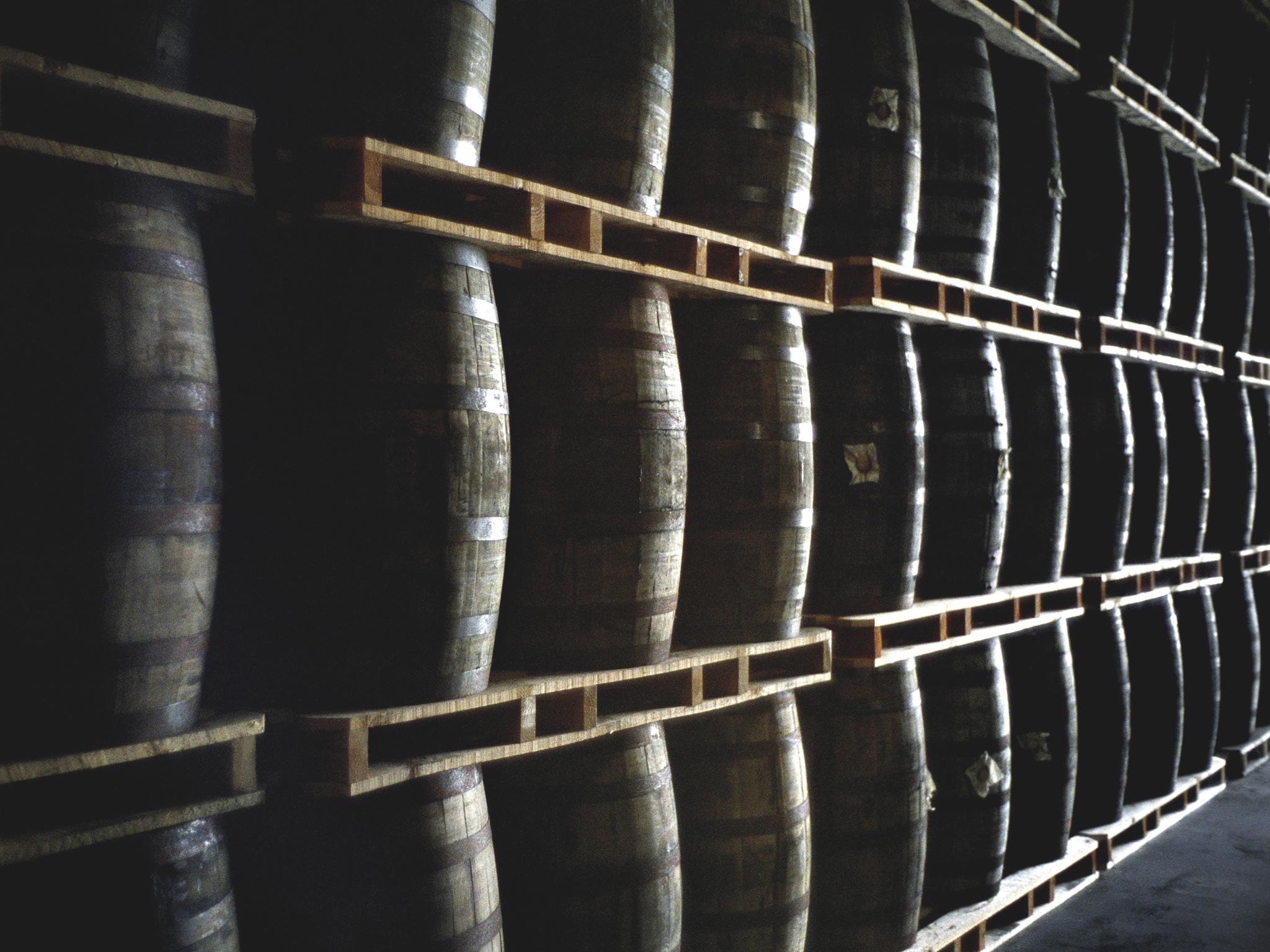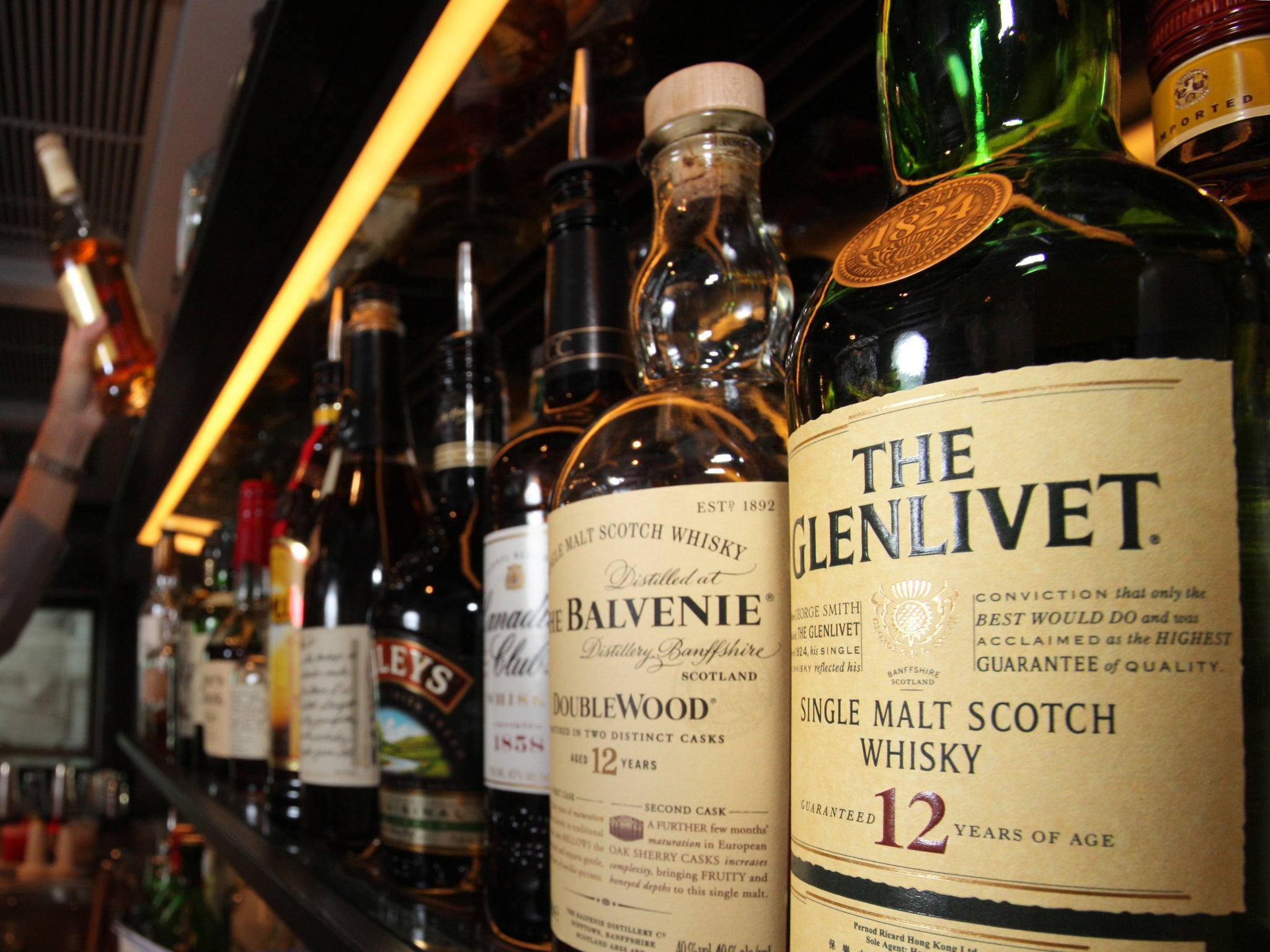Scots really do love whisky and Yorkshire prefers ale: research shows drinkers have regional tastes
Study backs up long-standing clichés about favoured tipples of different regions

Drinkers in the South-west really do love cider, while Scots buy more spirits and people in Yorkshire prefer ale – according to a new a study that confirms regional stereotypes.
For the first time, alcohol sales figures across the UK have been combined with regional data for alcohol-related deaths to analyse the relationship between heavy drinking and early mortality.
Central Scotland, the North-west and North-east have high levels of alcohol sales alongside higher than average alcohol-related death rates, the study found. Meanwhile in London, where alcohol purchases are lower than average, there are fewer alcohol-related mortalities.
But most interestingly, the study backed up long-standing clichés about the favoured tipples of different regions.
In central Scotland, where total alcohol sales were 18 per cent higher per head than the rest of the country, spirits including whisky made up 29 per cent of all sales, far higher than the national average.

In Yorkshire, beer was more popular, accounting for 46 per cent of all sales. And the West Country’s reputation as the home of good cider was confirmed by figures showing that it accounted for 13 per cent of all alcohol sales – compared to an average of 7 to 8 per cent for the rest of the country.
Of the 11 regions covered, the South-west, Central Scotland, the North-east, the North-west and Yorkshire all had higher levels of alcohol sales per adult than the national average, according to the report published in the BMC Public Health Journal.
Unlike previous studies, the NHS Scotland report did not rely on drinkers to report back what kind and how much alcohol they consume. This has traditionally led to sampling bias, as even moderate drinkers rarely admit how much or exactly what they consume.
According to the study, sales data is a far more efficient way to study de facto alcohol consumption.
Historic drinking habits
The news that the South West has a taste for cider and that Scots enjoy spirits is not a huge surprise. It was the Roman who first learnt how to ferment apples to make a refreshing drink before the Normans brought it to England in the 11th century. They found favourable soil conditions and sunlight in the south west and by the 1700s it had become an incredibly popular drink in ale houses, where it was drunk out of an earthenware mug with two handles. After a decline in the 1990s the industry is booming again thanks to the craze for fruit ciders among younger drinkers, although traditionalists say it’s not the same thing.
In Scotland, the state-sanctioned popularity of whisky dates back as far as 1494 and the first tax records of distilling, but “uisge beatha” – the water of life – probably dates back even further, as Highland farmers distilled spirits from their surplus barley.
In recent years the industry has become dominated by major foreign-owned international drinks firms, including Diageo which owns a dozen single malt brands. The boom in demand from China and India necessitated the need for extra investment.
Join our commenting forum
Join thought-provoking conversations, follow other Independent readers and see their replies
Comments